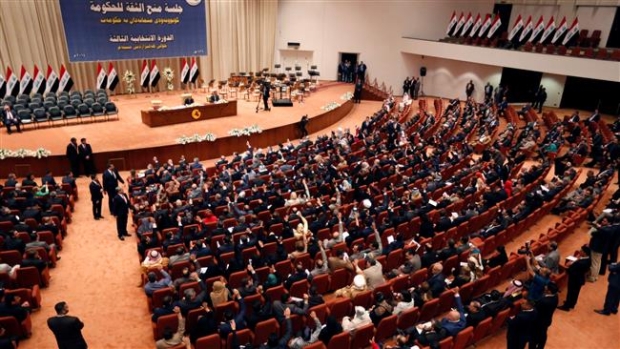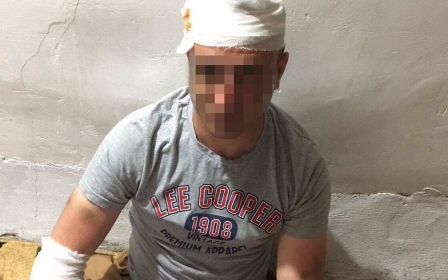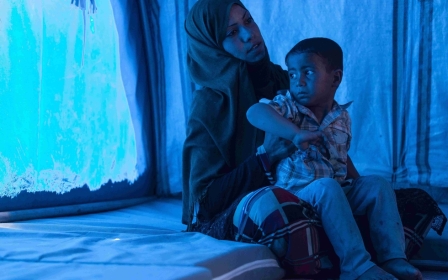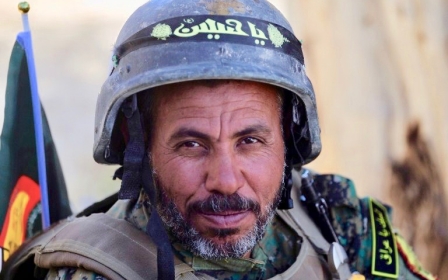Iraqi MPs call on Baghdad to block forced returns of Iraqi refugees
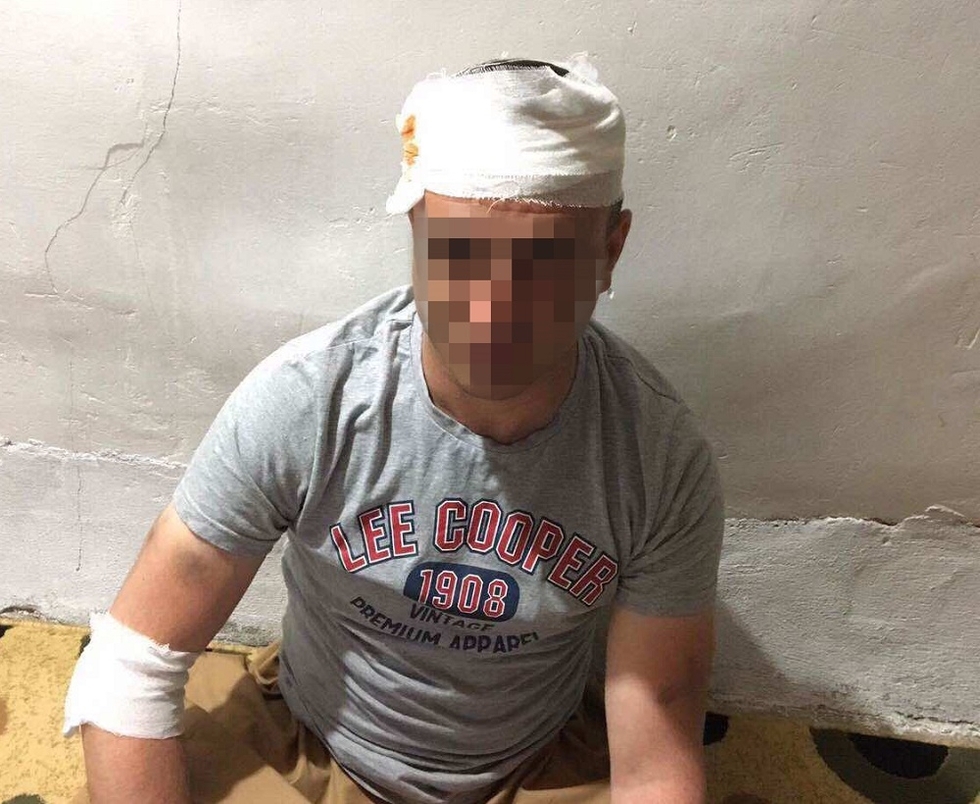
More than 100 Iraqi MPs have signed a resolution urging the government to block the deportation and forced removal of Iraqi nationals who have sought refuge in other countries.
The move comes after an Iraqi-Kurdish man claimed that he was bound, hooded and locked inside an airplane toilet for five hours last month, during his deportation from the UK to Iraq.
Dozens of Iraqi refugees in Britain and the United States are also being reportedly prepared to be forcibly removed and deported back to Iraq, despite the poor security situation in the country, according to the International Federation of Iraqi Refugees (IFIR).
The resolution, signed by 104 MPs, calls on the Iraqi government to "take all necessary measures to prevent the forced deportation of Iraqis from the countries they seek refuge in."
It also claims that refugees who are deported back to Iraq "are subjected to threats of physical elimination, suicidal tendencies and enormous financial and psychological pressures."
Dashty Jamal, who is a spokesperson for the IFIR, told Middle East Eye that "the resolution will be a positive step in helping Iraqi refugees who fear for their safety if taken back to Iraq.
"We successfully campaigned for the Iraqi parliament to tell the government to block the deportation of refugees back to the country in 2003, and we will do it again.
"But the British government which helped create the sectarian and ethnic violence in Iraq today must play its role in helping Iraqis by granting them asylum and not send them back."
Resolutions in the Iraqi parliament are not legally binding as the Iraqi government has the authority to accept or ignore them.
'The resolution will be a positive step in helping Iraqi refugees who fear for their safety if taken back to Iraq'
- Dashty Jamal, International Federation of Iraqi Refugees
Last week, a group of ethnic Kurdish MPs in Iraq's parliament submitted a list of Iraqi nationals to the government, provided by refugee activists, who are expected to be deported back to the country in the next few months.
The call by Kurdish MPs came after allegations about the treatment of an Iraqi-Kurdish national after he was deported back to Iraq.
Aras Ismail had attempted to seek asylum in Britain for the last 10 years before being forcibly removed.
The 32-year-old is now in hiding in Iraq: he fears for his life if sent back to Kirkuk, which is currently under the control of the Kurdistan Regional Government but has suffered attacks from Islamic State in recent months.
Trump's secret deal
In the United States, approximately 1,400 Iraqi nationals have been given final orders to leave after the Trump administration made a secret deal with the central government of Iraq in February.
Baghdad agreed to take in the Iraqi nationals after a revised US executive order written in February saw Iraq being taken off a list of seven-Muslim majority countries which are banned from entering the United States.
Between 2007 and 2015, more than 600 Iraqi refugees who spent their childhood in Britain were removed once they turned 18
Refugee activists have accused Britain of making similar secret deals with Iraqi officials in exchange for concessions, as more than 50 Iraqi nationals await their deportation in detention centres, according to IFIR.
The British government has also been criticised for returning thousands of Iraqi refugees who came to the UK when they were children.
Figures obtained by the Bureau of Investigative Journalists in London showed that between 2007 and 2015, more than 600 Iraqi refugees who spent their childhood in Britain were removed once they turned 18.
In 2011, the European Court of Human Rights in Strasbourg blocked such removals on the grounds that many regions in Iraq remained too dangerous after reports emerged of physical mistreatment of Iraqi Kurds at Baghdad airport, sectarian violence and al-Qaeda bombings.
Middle East Eye propose une couverture et une analyse indépendantes et incomparables du Moyen-Orient, de l’Afrique du Nord et d’autres régions du monde. Pour en savoir plus sur la reprise de ce contenu et les frais qui s’appliquent, veuillez remplir ce formulaire [en anglais]. Pour en savoir plus sur MEE, cliquez ici [en anglais].


